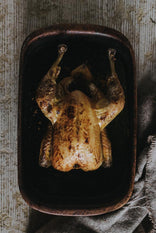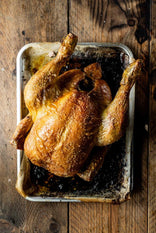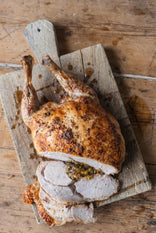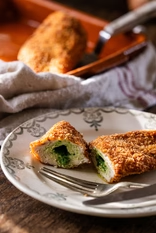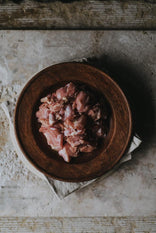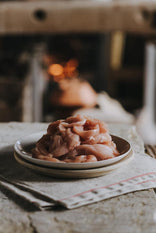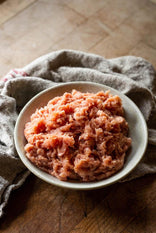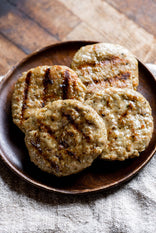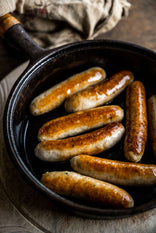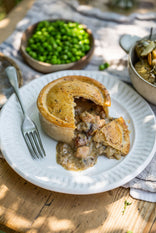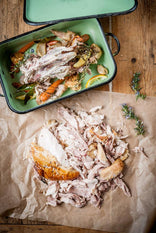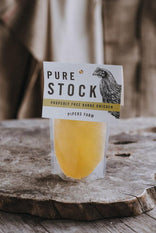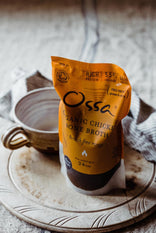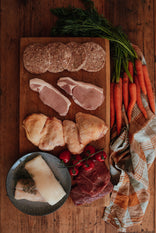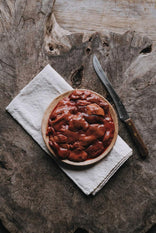




Properly Free Range Chicken
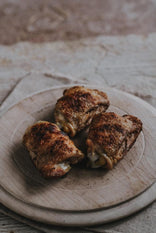
Properly Free Range Chicken Thighs On The Bone
Incredibly tasty & perfect for a long, slow cook
- Offer
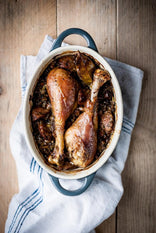
Properly Free Range Chicken Drumsticks
Perfect for marinating all year round
- Offer
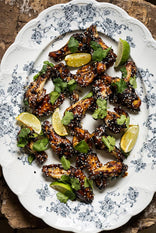
Properly Free Range Chicken Wings
Perfect for marinading for a flavourful feast


Family Farms, Not Factory Farms
Our properly free range chickens are able to roam outside on woodland pastures in natural light, and with the freedom to display their natural instincts such as scratching for food and dust bathing. These contented birds have properly developed bones and muscles and a strong natural immunity from pecking in the soil.
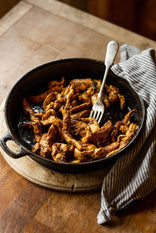
Tarragon & Ginger Chicken Stir Fry
This lovely dish can even bring a little sunshine on a grey day.
- OUT OF STOCK

Skinless Chicken Breast
Our Properly Free Range chicken breast makes a super simple

Properly Free Range Chicken Fillets
Tender, lean, ethically-sourced chicken.

Properly Free Range Apricot & Hazelnut Stuffed Chicken Breast
A nutritious and tasty meal, in just a few minutes.

Properly Free Range Boneless Chicken Thighs
Perfect for slow cooking or on the barbecue
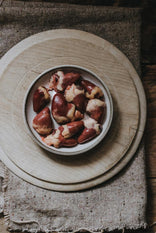
Properly Free Range Chicken Hearts
A delicious treat to marinate, BBQ or pan fry
Displaying 33-33 products

